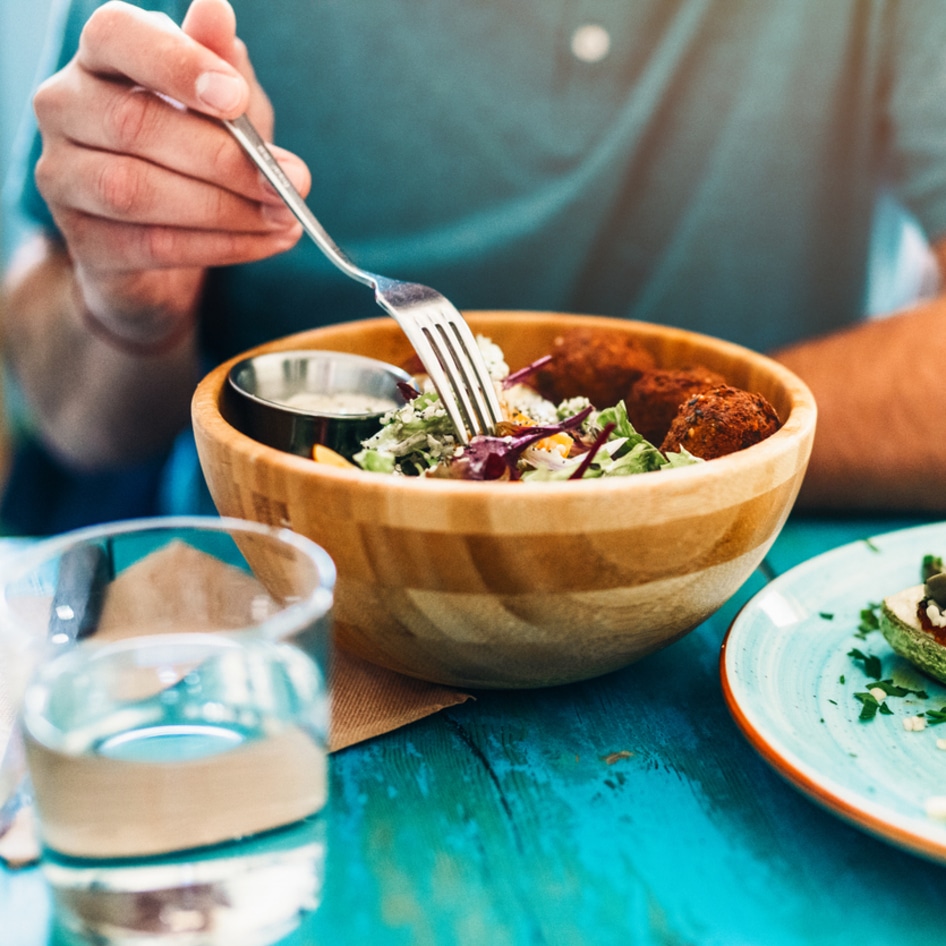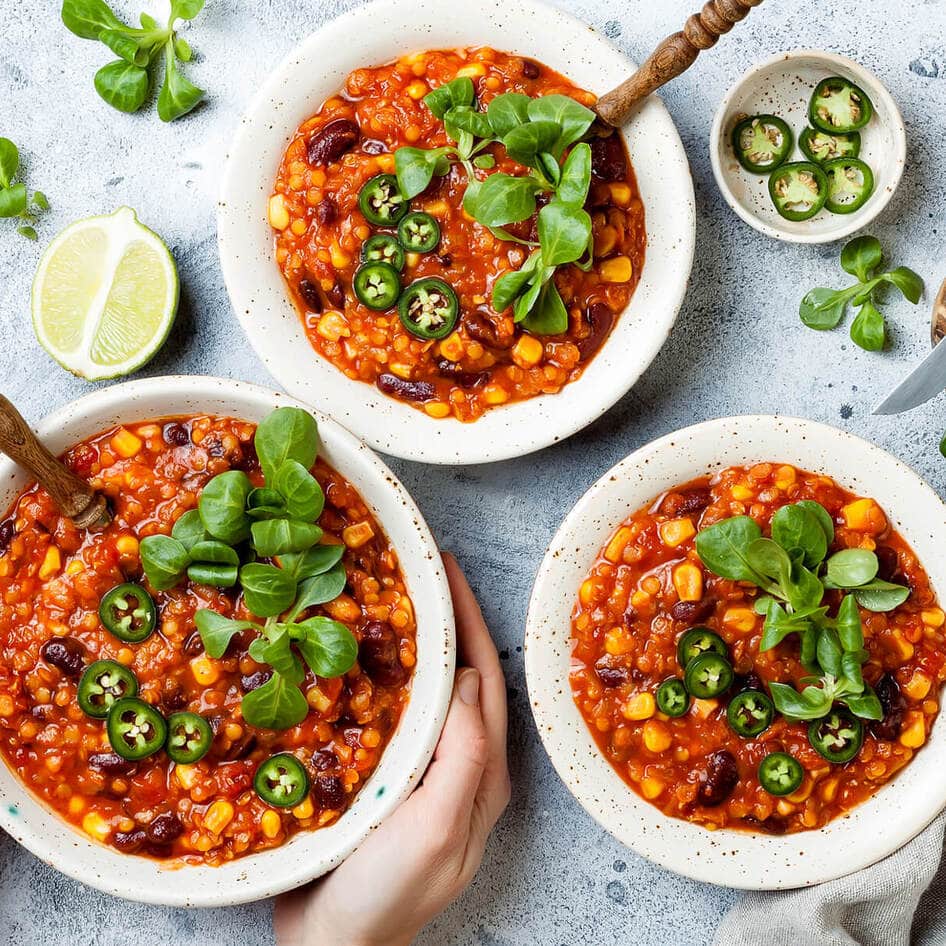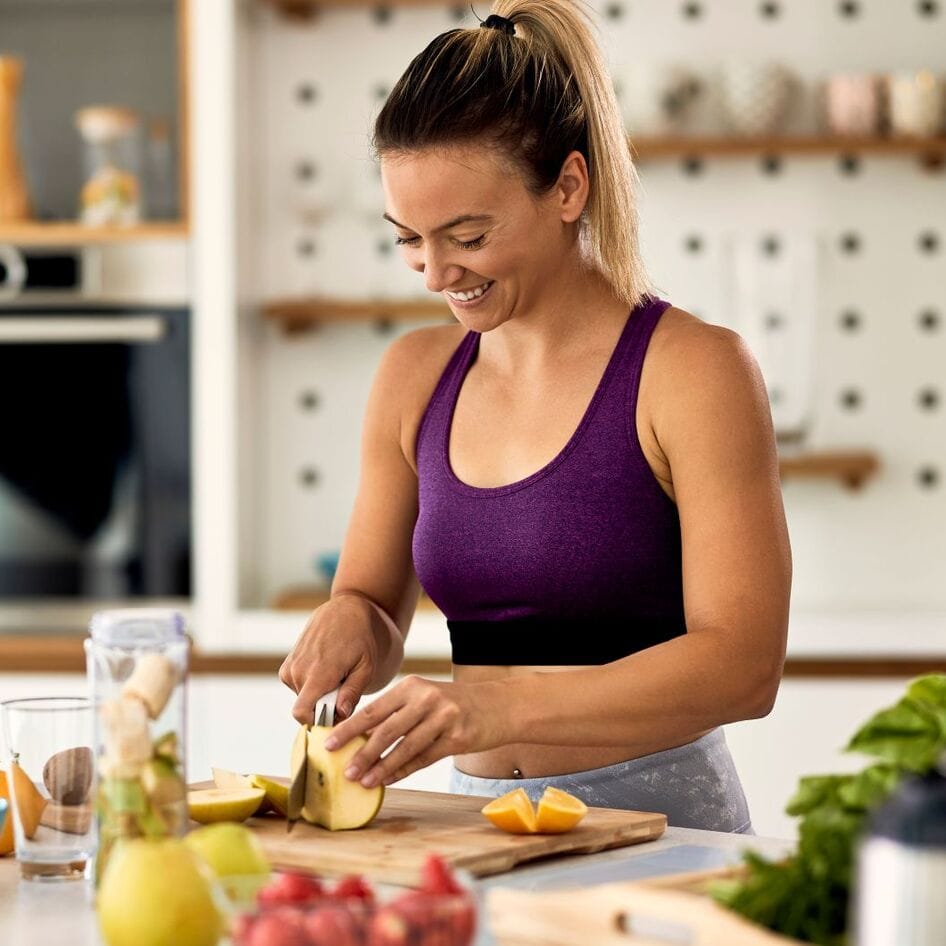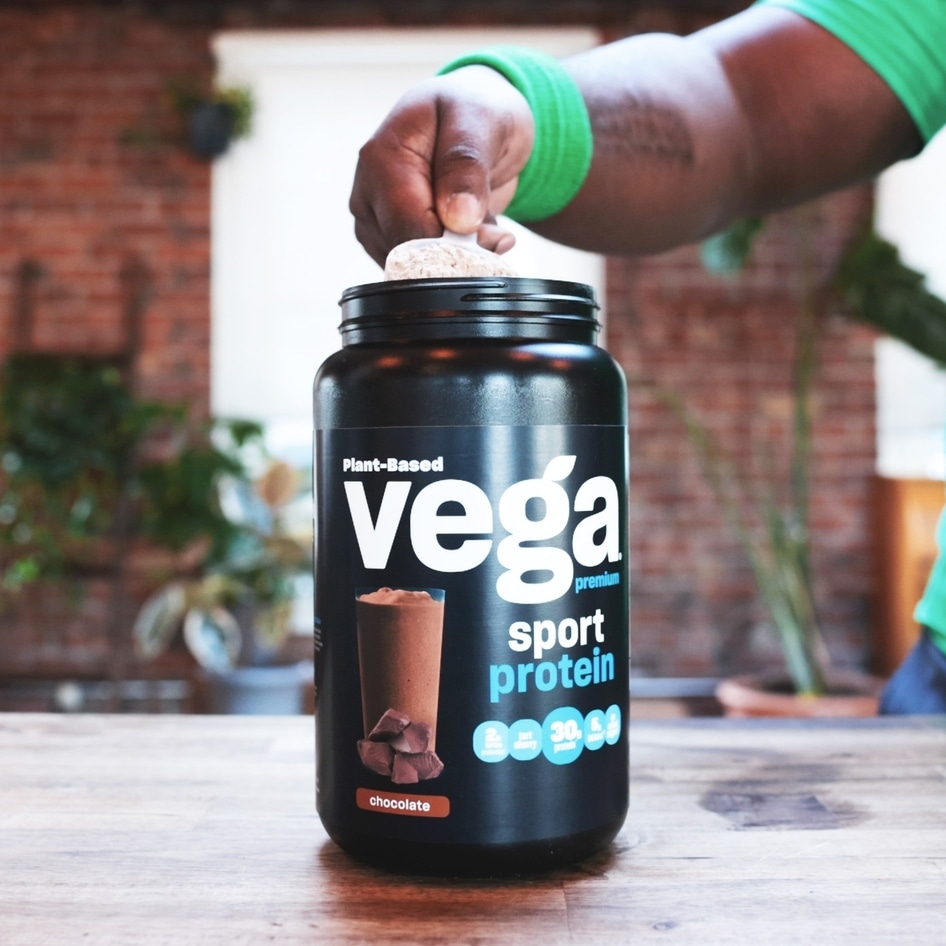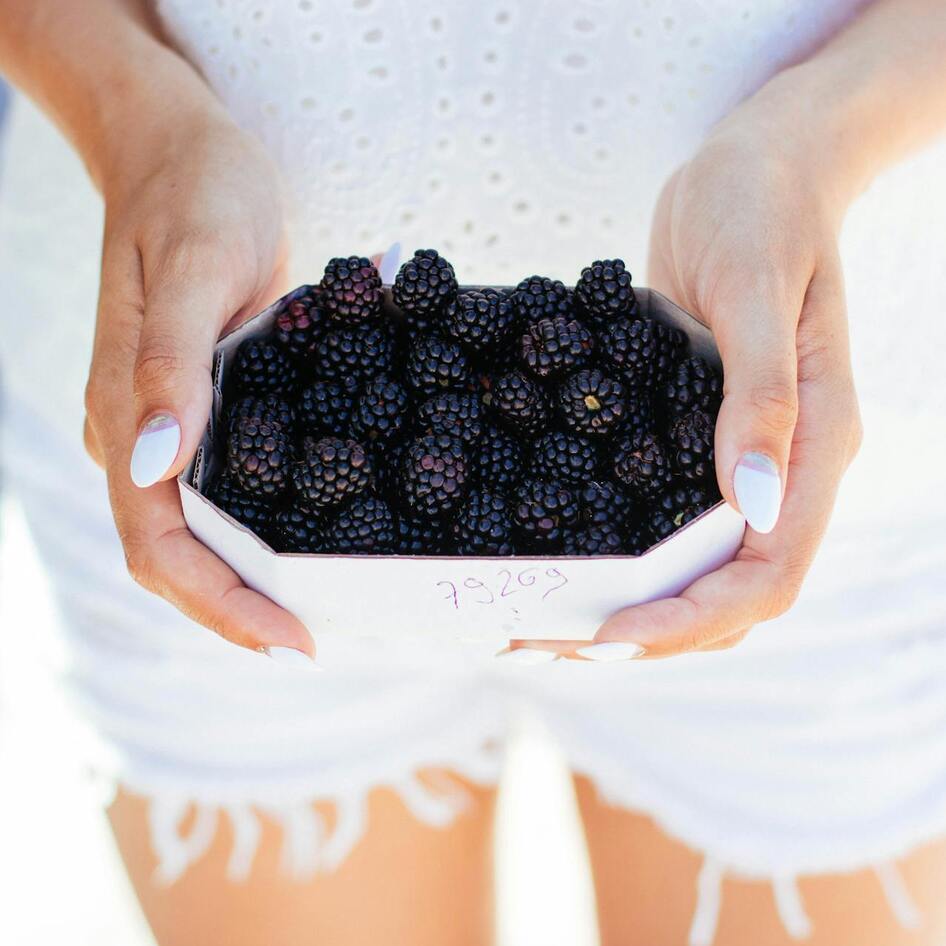A Vegan Bodybuilder’s Guide to Getting All the Nutrients You Need
Building muscle mass as a vegan is easy if you take the time to monitor your macronutrients.
April 4, 2018
Has anyone ever told you that getting all your macronutrients from a vegan diet is impossible? If so, you should ask that person where her or she got that information because that belief is wrong. The truth is that as long as you eat the right kinds of calories, fill yourself with protein, train hard, and rest even harder, almost anyone can build muscle mass without relying on any animal products. In fact, a plant-based diet is better for your muscle-gaining efforts, which is one reason vegans have advantages at the gym. Still, many bodybuilders are leery of adopting a plant-based lifestyle for fear that removing steak from their diets will turn them skinny. This also isn’t true, as a plant-based diet is a stellar way to put on muscle, so long as you go about it correctly. To understand what kinds of foods you should eat to supplement your bodybuilding, it’s important to look closely at the kinds of nutrients that are in your meals.
The role of calories
Understanding the science of weight gain comes down to the role of macronutrients (proteins, carbohydrates, and fats), which are the main energy providers in our bodies. Eating the correct ratio is essential for bodybuilding success, and while it’s important to experiment with daily calorie levels to learn what works best for you, a 2010 study found that male bodybuilders increased their muscle mass best at 18 to 23 calories per pound per day. Because vegan food is naturally lower in calories than meat-based meals, building muscle mass with vegan macronutrients requires extra attention to your calorie levels. If you don’t eat more calories than you burn in your workouts, weight gain is almost certain not to happen.
Looking at protein
No bodybuilder will last long without protein, a nutrient responsible for supporting the growth of body tissues, building antibodies, synthesizing enzymes and hormones, and repairing exercise-induced muscle damage. Contrary to popular belief, vegan dieters aren’t hindered when it comes to protein—instead of meat, they can rely on plant-based sources such as soy and pea protein. The key to building solid muscle mass is a well-balanced, protein-rich diet. This means eliminating the foods your body isn’t equipped to handle (such as junk food and sugary snacks). These food-like products damage our bodies and raise our body fat percentage with unhealthy levels of carbs and fats. Increased body fat hurts more than our competitive edge—it actually slows muscle growth due to an increase in insulin resistance. Because insulin is needed for muscle growth, this is bad news for bulking up. On the other hand, the opposite problem can also occur. Eating too much fresh produce and not enough high caloric foods might make you short on macronutrients and your weight gaining goals. Building muscle on a vegan diet requires mixing healthy fats and proteins into every meal. For best success, aim to eat at least six meals a day, combining carbohydrates with protein-rich sources like beans and tofu to get plenty of protein. A sprinkling of high-fat nuts will also make a difference for your health, especially when it comes to recovering after intense workouts.
Beyond macros
Monitoring your macronutrient and vitamin intake is important for general health, regardless of a person’s health goals. For this reason, pay attention to your daily iron intake and add some dark leafy greens, beans, and dried fruits to your plate for some non-heme iron. If you are a menstruating female, an iron supplement is also a smart idea. Calcium is another mineral our bodies require. Because it helps with bone maintenance and muscle contractions, calcium is imperative—not getting enough will have us keeling over at the gym from muscle cramps. Vegans can get more than enough calcium if they fill their plates with almonds, collard greens, spinach, and other dark green vegetables. When all else fails, a calcium supplement can help increase calcium levels. If you feel like your appetite isn’t where it should be and your testosterone levels seem low, a lack of zinc might be to blame. It’s best to aim for 40 milligrams of zinc everyday to enhance your muscle-building efforts, so be sure to eat plenty of zinc-rich foods such as almonds, fortified oatmeal, and pumpkin and sesame seeds.
Chris Willitts is the founder of VegetarianBodybuilding.com, creator of V3 Bodybuilding and Mindful Strength, and a contributing writer for Muscle & Fitness, Vegan Health and Fitness Magazine, and Natural Muscle Magazine.
JUMP TO ... Latest News | Recipes | Guides | Health | Subscribe

